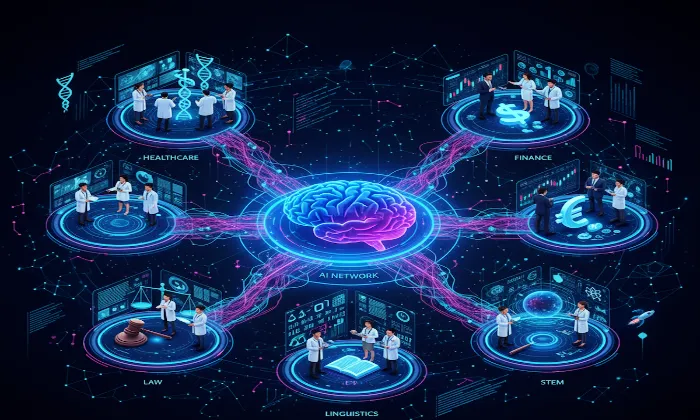How is patient privacy protected in doctor–patient datasets?
Data Security
Healthcare
Data Anonymization
Protecting patient privacy is crucial when developing doctor-patient conversation datasets for AI systems. By ensuring privacy, we uphold ethical standards, comply with regulations, and maintain trust in healthcare systems. Here’s a closer look at the strategies employed to safeguard privacy in these datasets, their importance, and how they're implemented.
Why Protecting Patient Privacy Matters
Patient privacy is a foundational right under laws like HIPAA in the U.S. and GDPR in Europe. These regulations ensure individuals control their health data, preventing misuse and fostering trust between patients and healthcare providers. Trust is vital; without it, the willingness to share sensitive information diminishes, potentially impacting healthcare outcomes. By protecting privacy, organizations create safer environments for data use and innovation.
Effective Strategies for Privacy Protection
- Simulated Conversations: Using simulated conversations is an effective way to protect patient privacy. Unlike real interactions, these conversations do not involve actual patient data. Instead, scenarios are crafted under the guidance of licensed healthcare professionals to reflect real clinical interactions. This method provides realistic data for AI training while mitigating privacy risks.
These simulated dialogues retain essential aspects like medical terminology and emotional nuances, making them valuable for developing AI models. This approach balances authenticity with privacy, ensuring the datasets remain ethically sound.
- Anonymization Techniques: Anonymization is another key strategy. This involves removing personally identifiable information (PII) from datasets. Names, locations, and contact details are replaced with placeholders or omitted entirely. In audio recordings, beep masking can hide accidental disclosures, ensuring identities remain protected even if data is accessed.
Transcripts are thoroughly reviewed to replace PII with tags (e.g., [NAME], [LOCATION]).
Strategies for Privacy Protection
- Anonymization Techniques:
- Replace PII with placeholders
- Use beep masking in audio
- Rigorous transcript reviews
- Simulated Conversations:
- Scenarios crafted by healthcare experts
- Retain medical accuracy without real data
Review and Compliance
- Ethical Oversight and Consent: Ethical oversight is essential. Independent review panels ensure datasets adhere to privacy standards. Participants give informed consent before recording, understanding how their data will be used. This reinforces ethical data practices. Healthcare professionals also review datasets for medical accuracy and ethical compliance. This dual review process ensures all privacy aspects are respected and upheld.
- Quality Assurance Measures: Quality assurance (QA) is integral to patient privacy protection. Automated quality checks assess recording clarity and duration, while human reviewers verify medical accuracy. This two-pronged approach identifies potential privacy issues before datasets are released.
- QA Processes Include:
- Automated recording checks
- Human review for medical accuracy
Real-World Applications
For example, FutureBeeAI's Doctor–Patient Conversation Speech Dataset leverages these strategies to provide ethically sound, realistic datasets. By using simulated conversations, we ensure compliance with laws and ethical standards, offering valuable training material for AI systems without compromising privacy.
Learning from Experience
Organizations must navigate trade-offs between data richness and privacy. Simulated conversations, while not capturing every real-world nuance, are essential for maintaining privacy. Thorough anonymization, though complex, is critical to protect identities. By investing in robust techniques and comprehensive reviews, privacy is upheld without sacrificing data utility.
In summary, safeguarding patient privacy in doctor-patient datasets is multifaceted, requiring ethical standards, legal compliance, and technical strategies. Through simulated conversations, anonymization, and rigorous reviews, organizations like FutureBeeAI provide valuable datasets for AI development while prioritizing patient rights and privacy.
Smart FAQs
Q. What is the role of consent in creating doctor-patient datasets?
A. Consent is crucial. Participants must provide explicit informed consent, ensuring they understand how their data will be used and that their privacy is protected.
Q. How do simulated conversations differ from real patient interactions?
A. Simulated conversations replicate real doctor-patient dynamics without using actual patient data. They maintain medical accuracy and realism while eliminating privacy risks.
What Else Do People Ask?
Related AI Articles
Browse Matching Datasets
Acquiring high-quality AI datasets has never been easier!!!
Get in touch with our AI data expert now!








